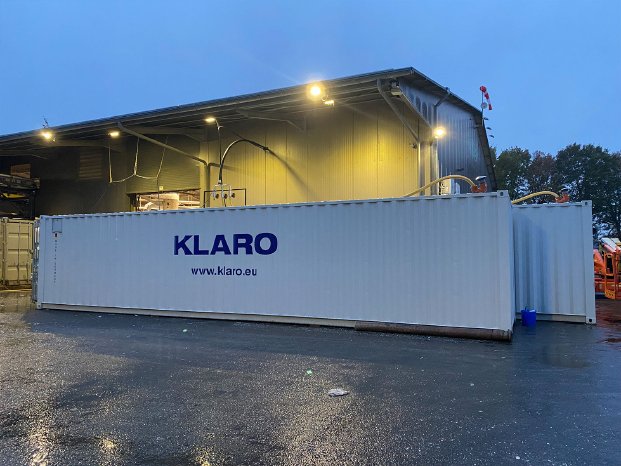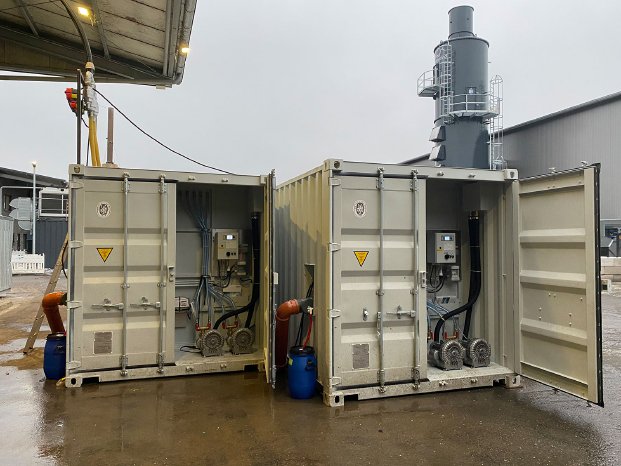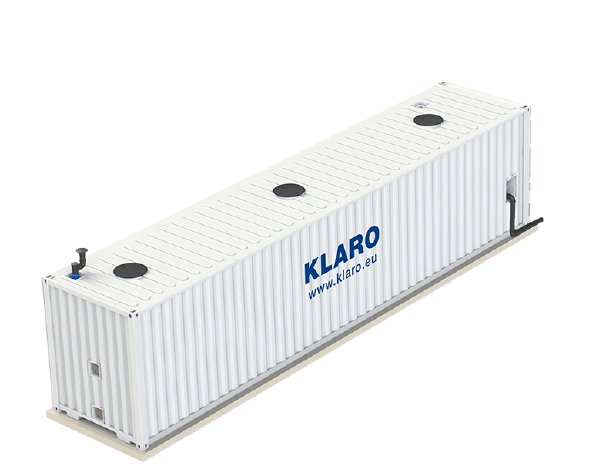KLARO containers are a more advanced version of the tried-and-tested wastewater treatment technology that has so far mainly been used for stationary applications in a wide variety of settings. The containers from the renowned Bayreuth-based company can be used on a mobile basis - for example, on large construction sites or at new hotels that are not yet connected to the municipal wastewater system.
Modular container design enables maximised capacity
Julian Ulbrich, KLARO project manager for container wastewater treatment plants, explains how such a system works: "Just recently, a plastics recycling company from Germany opted for our fully biological container wastewater treatment plant." The actual cleaning process takes place in a highly efficient, fully ventilated system in which microorganisms decompose organic contaminants in the wastewater. This already significantly reduces the level of pollution. The modular container structure is divided into two areas. The front one houses the technology required for operating and monitoring the system. The remaining part of the container is sprayed with a special coating and can therefore be used entirely as a bioreactor. Depending on requirements, the system is available in a 10, 20 or 40-foot sea container.
"In the case of the plastics recycling company described above, we were able to maximise capacity through modular expansion," explains KLARO project manager Julian Ulbrich. Due to the large wastewater volumes of approx. 90 m³ per day, three containers were connected together. This configuration makes it possible to treat large quantities of wastewater efficiently. "The best thing about it," explains Ulbrich: "The wastewater treatment plant will be completely refinanced within a few years thanks to the savings on fees for highly contaminated wastewater."
Lower wastewater costs thanks to pre-treatment
The other benefits of the KLARO container wastewater treatment plant are obvious. "Thanks to plug-and-play, we can install the containers very easily and facilitate quick relocations," says Julian Ulbrich. This makes the system particularly attractive for temporary or changing production locations. By pre-cleaning the wastewater, high costs for discharge into the sewer system are significantly lower. And the investment costs for the mobile wastewater treatment plant are refinanced after a few years thanks to the savings in wastewater charges.
At the same time, the operation of the system requires only a minimum of personnel. "Automated systems continuously monitor the system's performance and ensure that the cleaning processes run optimally," explains Project Manager Julian Ulbrich. Regular maintenance intervals and easy access to all components contribute to the high reliability and longevity of the system.
The plastics recycling company described above was able to significantly reduce its wastewater costs by integrating the KLARO container wastewater treatment plant. And in addition to the unexpectedly quick refinancing of the system, the environmental balance is also important here: The improved quality of the discharged wastewater reduces the strain on municipal sewage treatment plants. A win-win situation for everyone involved.





